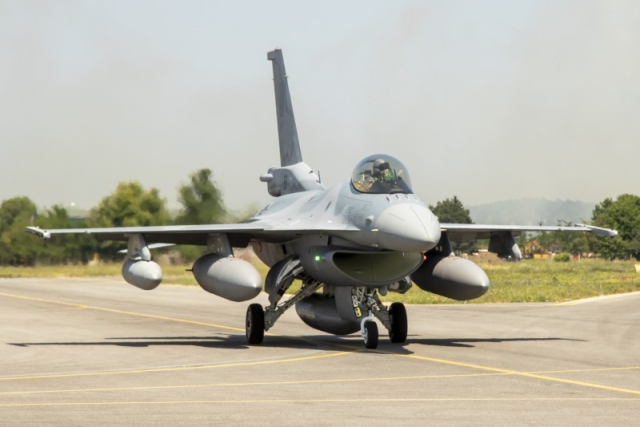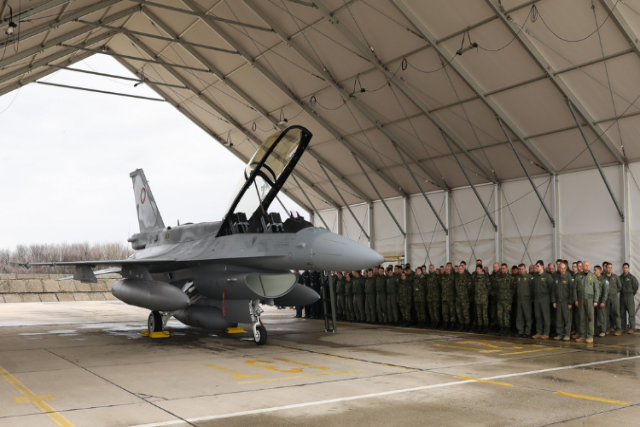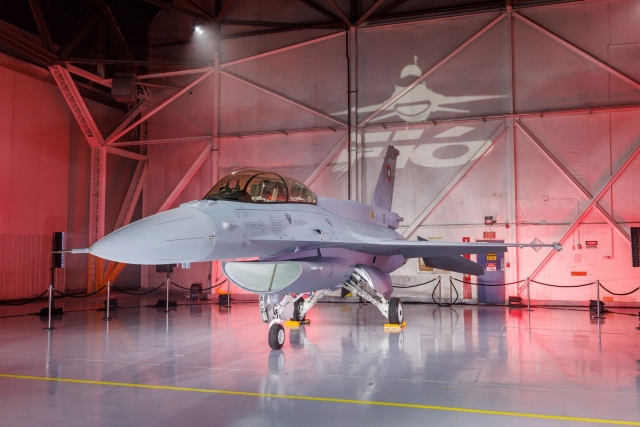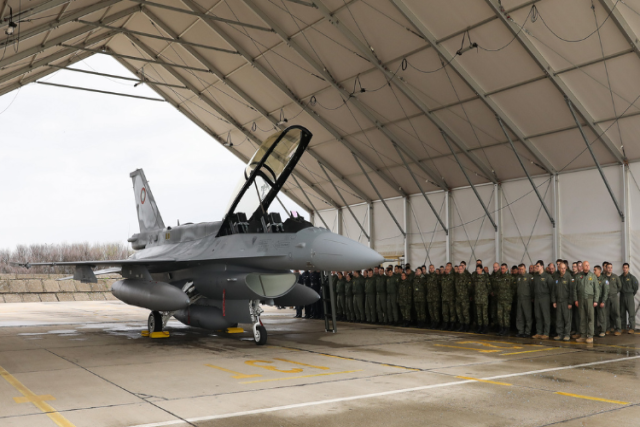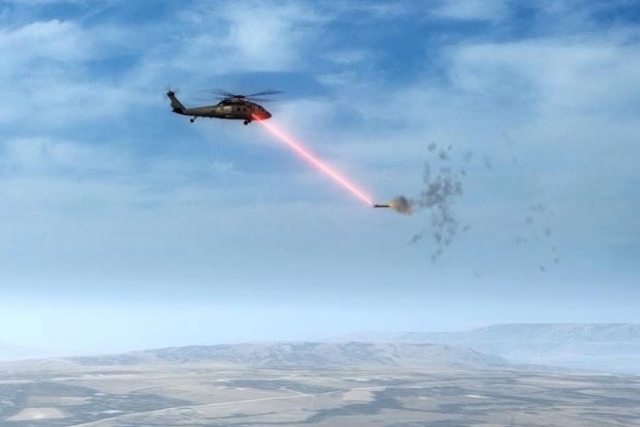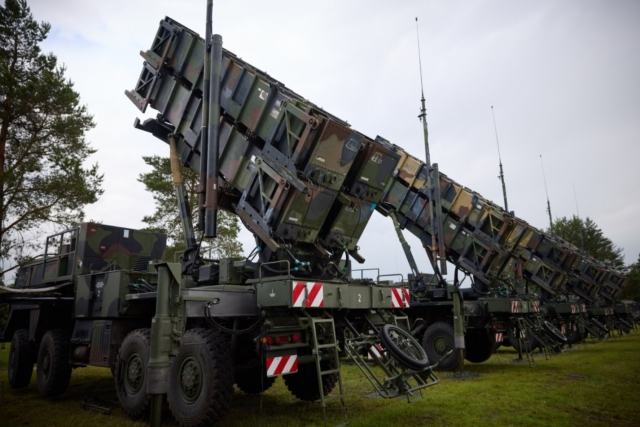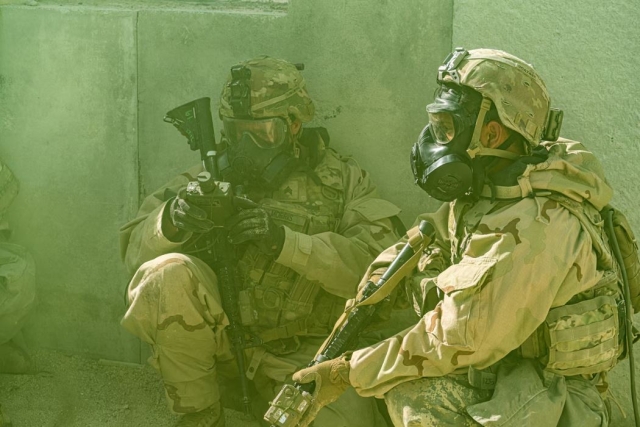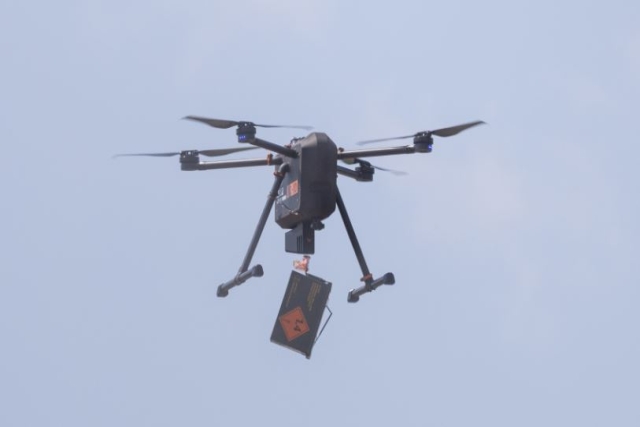Bulgaria Secures Full Logistics Support for Incoming F-16 Block 70 Fleet, Pilot Training Underway
Defense Minister Zapryanov assures aircraft will be fully serviceable as deliveries, training, and infrastructure move forward
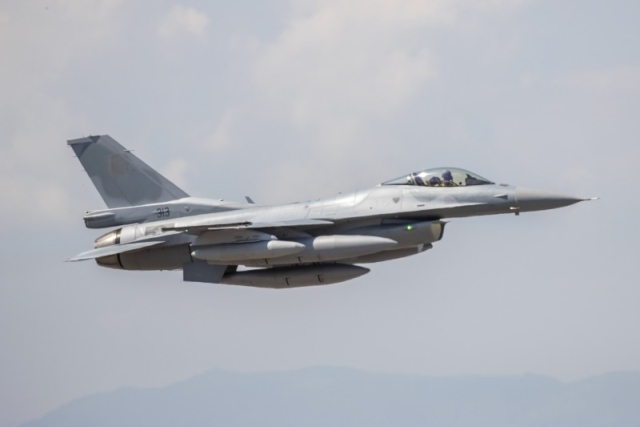
Bulgaria’s Minister of Defense Atanas Zapryanov has confirmed that both contracts for the acquisition of F-16 Block 70 fighter jets include comprehensive logistics support packages, ensuring the aircraft will remain serviceable from the moment of delivery.
The first of the F-16 Block 70 jets—configured as a combat training aircraft—arrived in April. Bulgaria is set to receive a total of eight F-16 Block 70 aircraft by the end of 2025 under the initial U.S. Foreign Military Sales (FMS) contract signed in 2019. A second contract will add another eight aircraft by 2027, creating a full squadron of 16 jets.
“Both the first and second contracts for the F-16 Block 70 provide for a logistics package and there is no danger that the aircraft will not be serviceable,” Zapryanov stated during a media briefing.
He added that the packages include a full range of ground support equipment, spare parts, and consumables designed to support an estimated 200 flight hours per aircraft per year during the initial two to three years.
According to Zapryanov, deliveries of spare parts, ammunition, and ground service equipment are already underway alongside the arrival of the aircraft. Technical and flight personnel from the U.S. Air Force, Lockheed Martin, and General Electric are also involved in the process.
“We are in the process of implementing the contract, and during technical acceptance of the first machines, we are reacting very quickly. We have strong support from the U.S. government and Lockheed Martin so that technical problems are addressed promptly,” he said.
The defense minister also noted that a contract for an integrated logistics support system covering the full life cycle of the aircraft will be signed soon.
Facility construction linked to F-16 operations has been accelerated. “We are also accelerating the construction of the facilities in the service sector,” Zapryanov added.
The Bulgarian Air Force is preparing for a full transition to the new platform, but current air defense responsibilities will remain with the MiG-29 fleet. “We have no ambition for the F-16 aircraft to immediately start carrying out duty,” the minister clarified.
Pilot training remains on schedule in the United States. Out of a planned 32 pilots—14 under the first contract and 18 under the second—five are already in Bulgaria, and three more are expected to return from the U.S. by 2027. Zapryanov emphasized that the training will continue at U.S. Air Force centers to ensure pilots can fully operate the capabilities of the F-16 Block 70.
